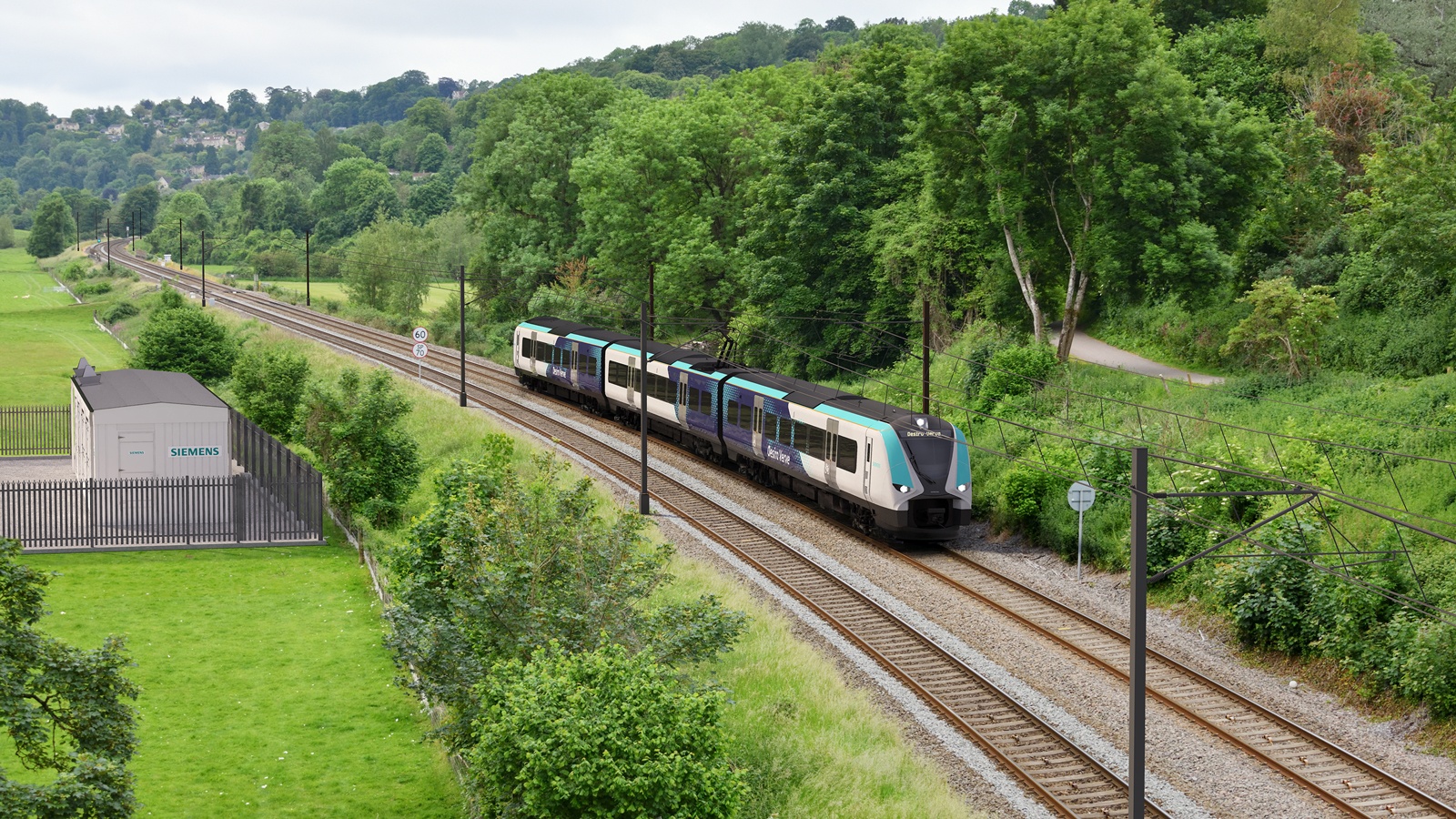
Jack Loughran Tue 4 Jun 2024
Collected at : https://eandt.theiet.org/2024/06/04/battery-powered-trains-could-cut-co2-while-saving-britains-railways-ps35bn
‘Bi-mode’ trains that operate on battery power when not using an electrified track could save Britain’s railways £3.5bn and 12 million tonnes of CO2 over a 35-year period, Siemens Mobility has said.
The trains, which would be assembled at the firm’s manufacturing facility in Goole, East Yorkshire, could be powered by overhead wires on already-electrified routes, then switch to battery power where wires are absent.
Only small sections of the routes or particular stations would have to be electrified, making it much quicker and less disruptive to replace diesel trains compared with full electrification.
Siemens also said it had developed a way to fast-charge the train’s batteries at key points along the route, using infrastructure that can be plugged directly into the domestic grid.
Last year, a mere 10% of British freight trains were being hauled by electric locomotives, while a handful of short unelectrified sections forced them to be diesel-hauled for long distances.
The Chartered Institute of Logistics and Transport recently called for the government to prioritise electrifying these short sections as they would allow around two million train miles a year to be decarbonised – equivalent to taking around 80 million diesel HGV miles off Britain’s roads each year.
Sambit Banerjee, joint CEO for Siemens Mobility UK & Ireland, said: “Britain should never have to buy a diesel passenger train again. Our battery trains, which we’d assemble in our new Goole factory in Yorkshire, can replace Britain’s ageing diesel trains without us having to electrify hundreds of miles more track in the next few years.
“So, on routes from Perth to Penzance, passengers could be travelling on clean, green battery-electric trains by the early 2030s. And the best thing is that this would save the country £3.5bn over 35 years.”
The firm said that a number of train operators are already looking to replace their aging diesel fleets anyway, including Chiltern, Great Western Railway, Northern, ScotRail, TransPennine Express and Transport for Wales.
Computer modelling showed that battery bi-mode trains would only require 20-30% of a line to be electrified and their lithium titanate oxide batteries can be charged up to full capacity in 20 minutes while moving along the electrified sections or charging while stopped at stations.
The technology would supposedly reduce CO2 emissions by 12 million tonnes over that period, the equivalent of removing 80,000 cars from UK roads. Siemens Mobility’s first battery train fleet is already in passenger service in Germany.

Leave a Reply